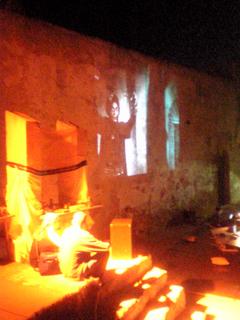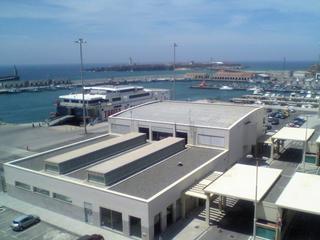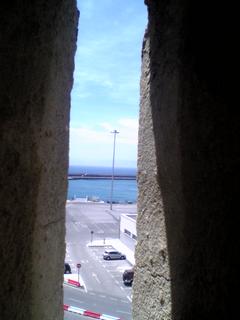
The format of Fadaiat: During the day we had 2-4 "talleres" or workshops, which informed the evening presentations. There were also informally organized evening "Salons." I´ll list here the topics which I found most provocative and rattle off a few thoughts of my own.
1. Precariousness / Die Prekaeriat/ la precarizacion de la existencia. This is Fadaiat's most important contribution to the discourse on immigration and the future of the left in Europe and beyond. A brilliant answer to the riddle prompting Fadaiat, which is 'how to reconcile immigrant solidarity with leftist anti globalization forces?'
The answer is inscribed in Spanish history. Dissolve the binary prompted by citizenship, and focus on challenges faced by immigrants... and "native" workers (many Spanish workers were immigrants until very recently, and importantly many of them remember) ... and shared also by students buried in debt, artists, and 'knowledge workers.'
Importantly, "precariousness" cannot be applied universally to, for example, pscyhological conditions, as was argued by Sandro Mezzadra.
2. Biosindicalismo / Holistic unionism. Chavez's idea of a "Union in the Community" was well received and this would be an innovation to Europe in my opinion. As one old local reminded the group, however, it is essential to preserve the movement's memory. Bio unionism sounds very similar to what the Green Party advanced in the early 80's, and it would be important to learn from mistakes of the past. Interestingly the word 'ecology' came up to describe everything but nature.









